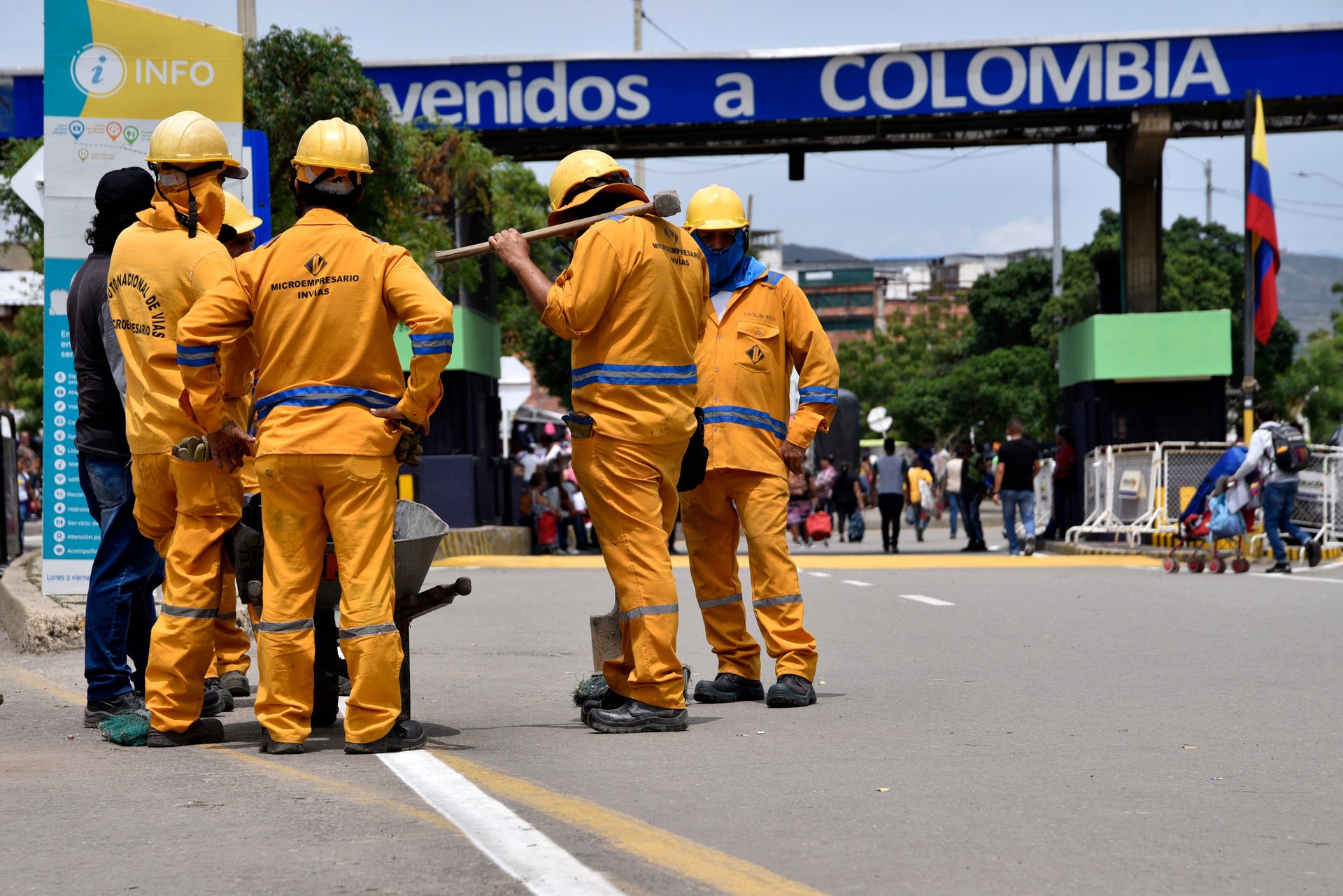The Tienditas bridge serves as a powerful symbol of improving ties between Venezuela and Colombia
The bridge’s construction finished in 2016, but it was never opened to traffic due to tensions between the countries

The Tienditas bridge, a key thruway connecting Colombia and Venezuela, is set to open on Thursday (Dec. 15) in a literal and metaphorical demonstration of improving relations between the two South American countries. While construction was completed in 2016, the bridge was never opened due to deteriorating relations between Caracas and Bogota. The election of Colombia’s leftist president Gustavo Petro in June provided Venezuelan leader Nicolas Maduro with an opportunity to restore diplomatic and commercial ties with its neighbor. The two countries plan to fully reopen their borders in 2023.
Suggested Reading
Colombia’s ambassador to Venezuela Armando Benedetti confirmed details of the bridge’s opening in a tweet. He stressed that it was a significant step in the Colombian government’s plan to promote economic and social integration between the two countries. In November, Petro visited Caracas on an official state visit, becoming the first Colombian president to travel to Venezuela in nine years.
Related Content
Opening the bridge is in line with a series of recent steps president Maduro has taken to normalize diplomatic relations with countries throughout the Americas, most notably with the United States. The Trump administration had imposed extensive sanctions on the country in 2019 after the Venezuelan opposition contested the 2018 elections. Last month, the US government granted Chevron limited authorization to resume exporting Venezuelan crude oil after the Maduro government agreed to talks with opposition leader Juan Guaido on holding free and fair elections.
The Biden administration had reportedly been discussing easing the trade restrictions with Caracas for months in the aftermath of the war in Ukraine, as Venezuelan oil can help compensate for the loss of sanctions-hit Russian crude. As part of the deal, US officials also negotiated the implementation of a $3 billion humanitarian aid package targeting food and medicine shortages in the country.
Fun🛢️fact
In 2005, during the peak of American economic sanctions on Chavez’s government, two Massachusetts congressmen directly negotiated with Venezuelan authorities to provide affordable oil to their constituents amid rising gas prices.
Conservative lawmakers in the US attacked the deal for subverting president George W. Bush’s strategy in the region, while Rep. William Delahunt said: “I don’t report to George Bush. I’m elected by the people here in Massachusetts. So I don’t feel any particular need to consult with George Bush or Dick Cheney about oil.”
The Venezuelan state-run oil company purchased full-page ads in the New York Times and Washington Post boasting about how it was keeping residents of Massachusetts warm during a cold winter.
Millions of Venezuelans have fled the country
Venezuela’s compounding political and economic crises in recent years have driven over seven million citizens to leave the country, making it the second-largest displaced population in the world. In a recent report on the crisis, Human Rights Watch called it the “largest migration crisis in recent Latin American history,” with the numbers rivaling populations displaced by the wars in Syria and Ukraine.
The mass migration has been acutely felt by Venezuela’s neighbors, with more than 2.5 million migrants settling in Colombia and another million in Peru. Its effects can also be seen on the US’s southern border, which reported 189,520 interactions with Venezuelan citizens in 2022, up from 4,520 in 2020. In October, US immigration authorities announced a fast-track process for any citizen of Venezuela seeking to legally emigrate due to the “urgent humanitarian” situation.
As domestic challenges from historic inflation to waning political support weigh on the Venezuelan president, it’s key for Maduro to find friends abroad, which is why he’s made overtures to the international community. Having a friendly neighbor across the border can give Maduro some respite as negotiations with Western powers to facilitate free elections in 2024 continue in Mexico City.